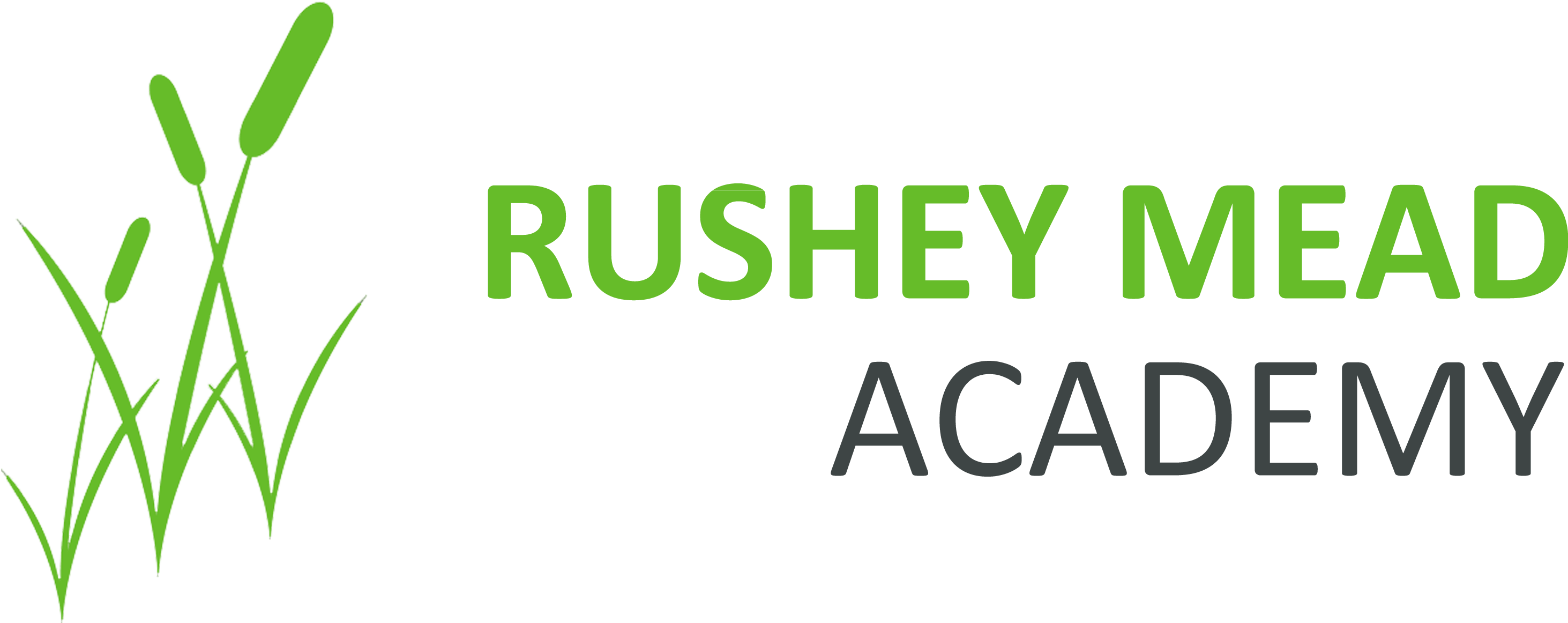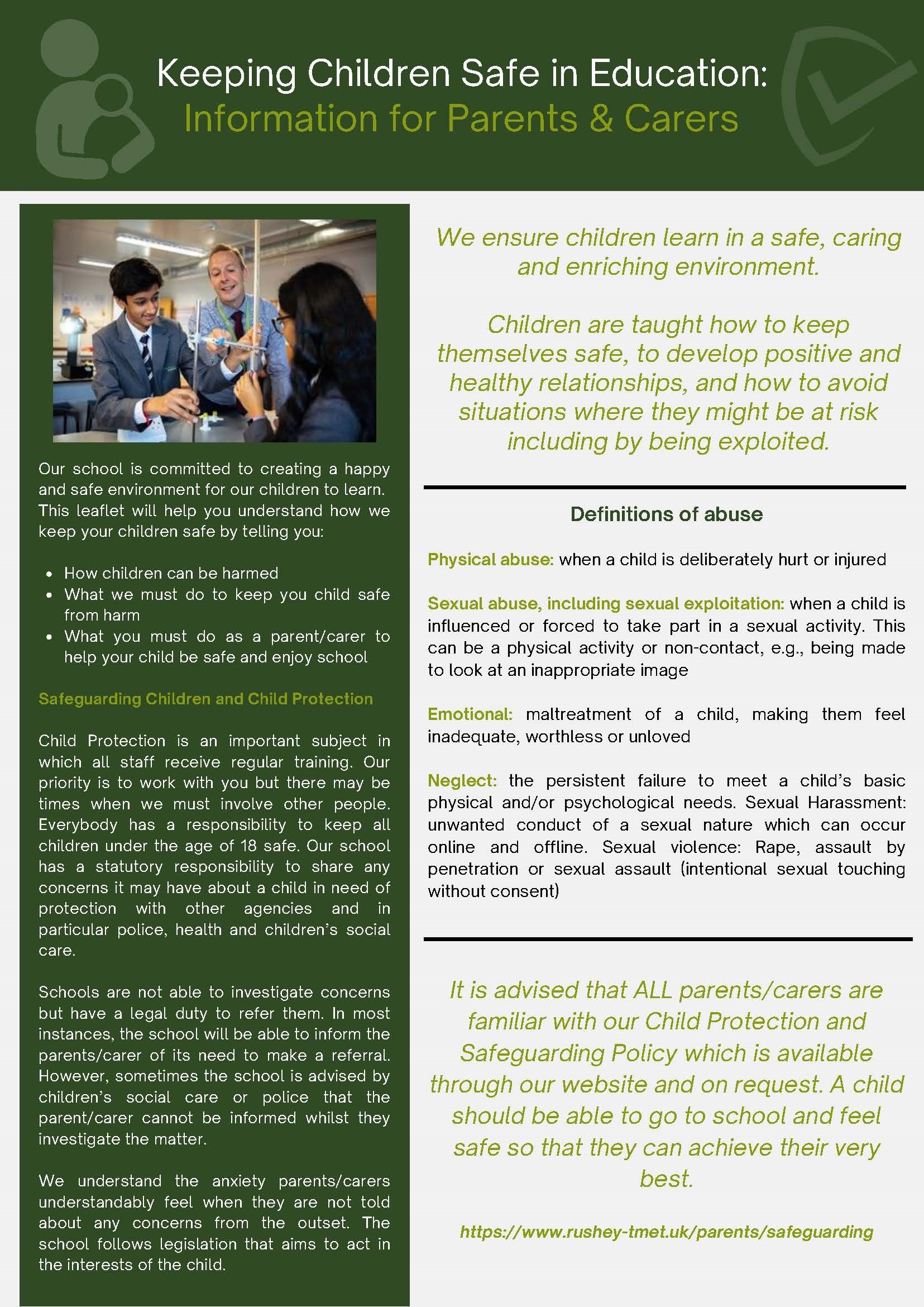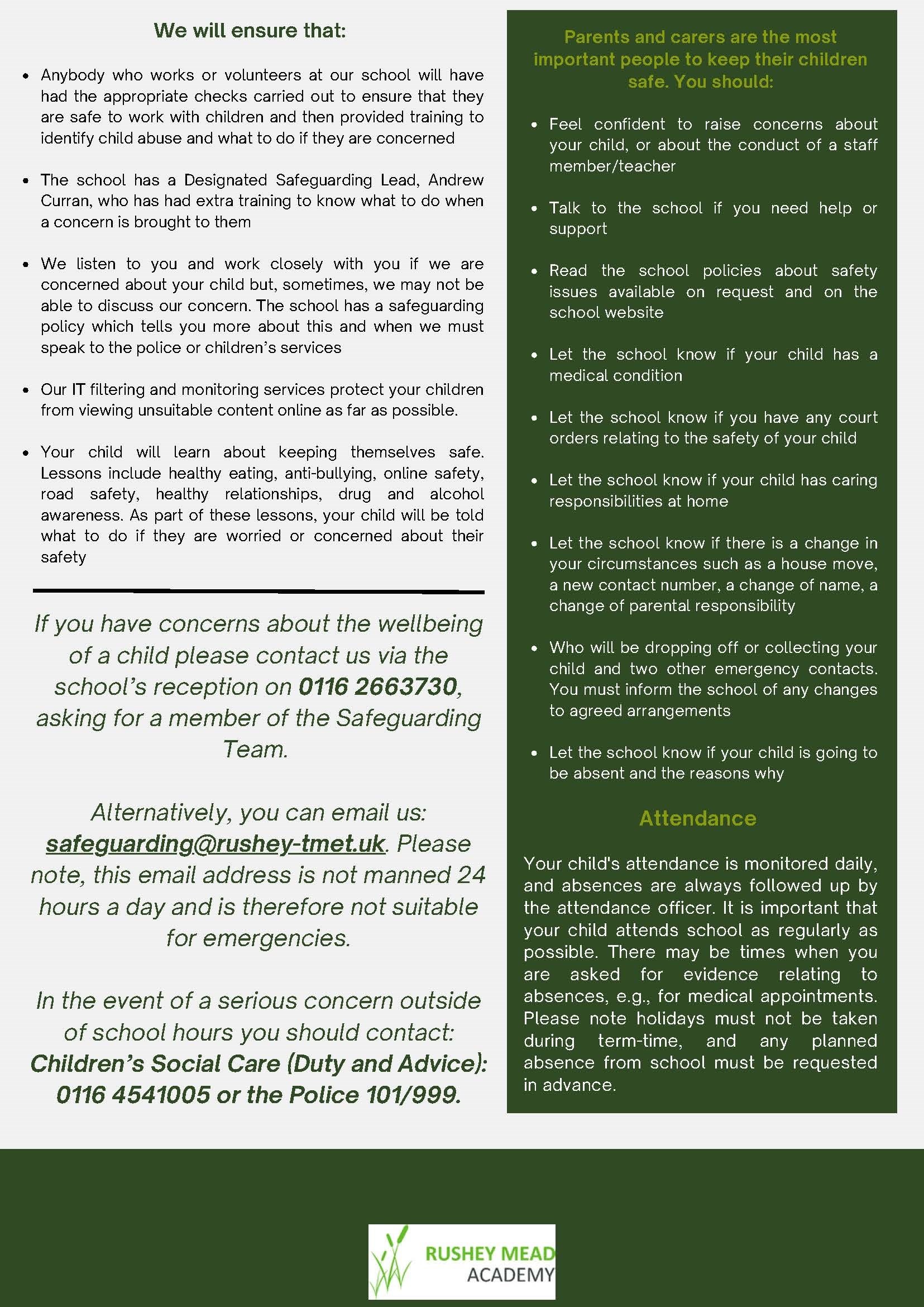Dear Parents / Carers
We want to assure you of our absolute commitment to creating a happy and safe environment for all members of our academy community. We work closely with students, their parents and carers in order to ensure that our young people are safe both inside and outside of school.
Students are taught how to keep themselves safe through PSHE lessons, tutorials and other wider experiences such as taking part in workshops, and assemblies. At Rushey Mead we aim to ensure that all students learn how to keep themselves safe both on and off-line, how to have safe and healthy relationships and how to avoid exploitation.
The academy has a statutory responsibility to share any concerns it might have about a child in need of protection with other agencies and in particular with the Police, Children’s Services and Health. Schools are not able to investigate concerns but have a legal duty to refer any concerns that they do have on to the most relevant agency. In most instances, we will be able to inform the parents/carer of its need to make a referral and will ensure that the parent/carer is fully informed of the action that the school has taken. However, on occasions we may be advised by Children’s Social Care or by the Police that the parent/carer cannot be informed whilst they investigate the matter. We understand the anxiety parents/carers understandably feel when they are not told about any concerns from the outset. The school follows legislation that aims to act in the best interests of the child.
Mr Andrew Curran
Designated Safeguarding Lead
Email: [email protected]
If you have concerns about the wellbeing of a child, please contact us via the school’s reception on 0116 2663730, asking for a member of the Safeguarding Team. Alternatively, you can email us: [email protected]. Please note, this email address is not manned 24 hours a day and is therefore not suitable for emergencies.
In the event of a serious concern outside of school hours you should contact: Children’s Social Care (CASP): 0116 4541005 or the Police 101/999.
Key Information for Parents
Keeping Children Safe in Education- Information for Parents/ Carers Letter 2024
Online Safety
It can be hard for parents to keep up with new technologies, and just thinking about keeping children safe online can seem daunting.
The main dangers children and their parents need to be aware of are: cyber bullying, grooming by sexual predators and the problems of posting personal or embarrassing information online.
It is important to remember that the internet is a fun and valuable place for children to play and learn, and the vast majority of the time using the internet is a fantastic experience for millions of children.
However there can be hidden dangers. On the internet people can be instantly connected and you cannot always be sure you are talking to the person you think you are. It is also worth remembering, once something is posted on the internet it is almost impossible to remove and so personal or embarrassing material can be seen by anyone, anywhere.
We shouldn’t be overwhelmed by the negatives, remember the internet is a great resource for children. It is important that we give them space to explore the internet, so they can learn to keep themselves safe.
Finally, remember children learn by exploring and that the world they live in includes the internet. You can help by making sure they learn in safety, by being there for them when they need you and by pointing them in the right direction if and when they need your guidance.
For more information visit the CEOPS website.
If you have any questions or concerns with regard to e safety please contact your child’s Assistant Head of Year or Mrs Chohan . Email: [email protected]





 Make A Positive Difference
Make A Positive Difference